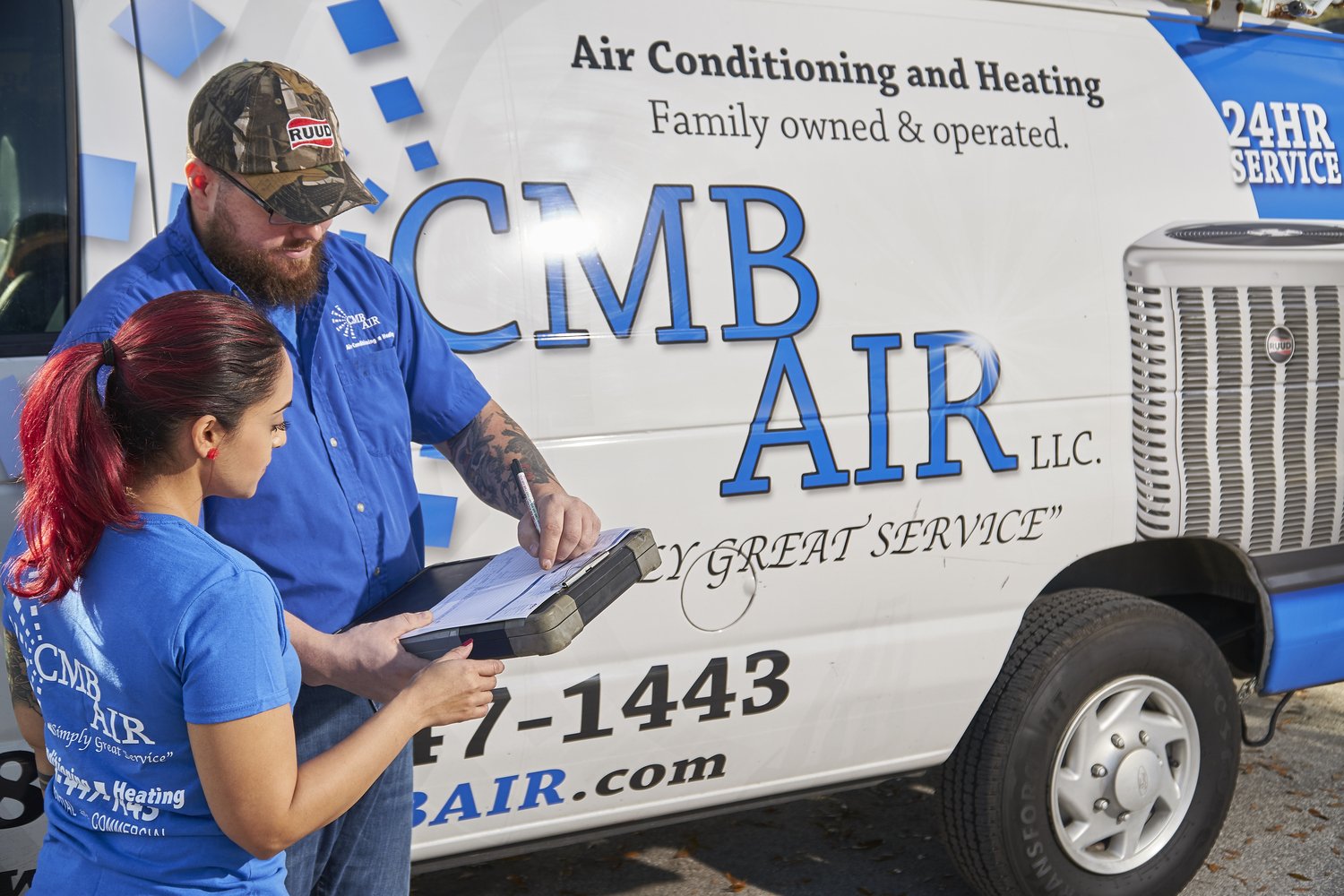
Condenser Coil Repair or Replacement in Tampa and Surrounding Areas
AC condenser coil replacement may become necessary due to issues like corrosion or physical damage. Over time, exposure to the elements can lead to corrosion of the coil, reducing its effectiveness in dissipating heat. Additionally, physical damage from debris or weather events can impair the coil's performance. When these issues arise, homeowners may consider replacing the condenser coil to restore the efficiency of their air conditioning system.
-
The cost of condenser coil replacement can vary depending on factors such as the size of the unit, the extent of damage, and the brand of the replacement coil. Typically, condenser coil replacement costs may include the price of the new coil, labor costs for installation, and any additional materials or fees. However, investing in a new condenser coil can improve the overall efficiency and performance of the air conditioning system, leading to lower energy bills and improved indoor comfort.
Homeowners can consult with HVAC professionals to assess their specific needs and determine the most cost-effective solution for condenser coil replacement.
Cost of Condenser Coil Repair or Replacement
Understanding the financial implications of condenser coil services helps property owners decide about their HVAC systems. Our experienced technicians provide detailed cost analyses considering multiple factors affecting repair and replacement expenses. The evaluation process examines both immediate repair costs and long-term operational savings. This comprehensive approach allows for budget-conscious decisions while maintaining system reliability and efficiency.
Condenser Coil Repair vs. Replacement
Cost Considerations
The financial analysis of condenser coil services involves comparing repair costs against replacement value. Our detailed evaluation examines labor requirements, parts availability, and potential energy savings from upgraded equipment. The assessment also considers warranty coverage and anticipated maintenance needs. This thorough financial review provides a clear direction for the most cost-effective long-term solution.
Extent of Damage
Professional evaluation determines the scope and severity of condenser coil issues. Our diagnostic process utilizes advanced testing equipment to assess damage patterns and performance impact. The inspection includes an examination of fin condition, tube integrity, and overall coil structure. These findings guide recommendations between repair feasibility and replacement necessity.
System Efficiency
Performance metrics reveal the impact of condenser coil condition on overall system efficiency. Our testing procedures measure current operating efficiency against manufacturer specifications. The analysis considers potential efficiency improvements from either repair or replacement options. This data-driven approach highlights opportunities for reducing operational costs through appropriate service decisions.
Longevity
The expected service life of the condenser coil influences repair versus replacement decisions. Our experience with various manufacturers and models provides insight into reliability patterns and durability factors. The evaluation considers environmental conditions, usage patterns, and maintenance history. This comprehensive assessment projects the long-term value of available service options.
Risk of Further Damage
A professional risk assessment examines potential complications from various service approaches. Our evaluation considers the interconnected nature of HVAC components and possible cascade effects. The analysis includes an examination of connected equipment conditions and system stress factors. These insights protect against unexpected failures through appropriate service decisions.
Our Reviews
Customer care is our priority.
Choose CMB Air for Condenser Coil Repair or Replacement
-
Our certified professionals bring extensive knowledge to every condenser coil service project. The technical team maintains current training on advanced repair techniques and installation procedures. This expertise translates into efficient service delivery and reliable system performance. Professional workmanship standards protect equipment longevity while maximizing operational efficiency.
-
Superior components form the foundation of our condenser coil services. Our supplier network provides access to manufacturer-certified replacement parts and premium repair materials. The selection process prioritizes durability and performance characteristics. This commitment to quality materials supports long-term service reliability.
-
Thorough evaluation procedures identify all factors affecting condenser coil performance. Our inspection protocols include detailed documentation of component conditions and operating parameters. The process incorporates advanced diagnostic tools and systematic testing procedures. This methodical approach reveals underlying issues while preventing overlooked problems.
-
Clear communication about service costs helps clients plan for necessary HVAC investments. Our pricing structure reflects fair market rates while maintaining high service quality standards. The estimation process includes detailed breakdowns of all required materials and labor. This transparency eliminates surprises while building trusted client relationships.
-
Strong service commitments back every condenser coil project we undertake. Our quality assurance process includes post-service performance verification and client consultation. The follow-up procedures confirm proper system operation and address any concerns. This dedication to client satisfaction demonstrates our commitment to excellence in HVAC services.
AC Condenser Coil Replacement in Tampa
-
Corrosion
AC condenser coil corrosion can occur due to exposure to humidity, saltwater, or other environmental factors. Over time, this corrosion can weaken the coil's structure and reduce its ability to transfer heat efficiently. Signs of corrosion may include rust spots, discoloration, or visible deterioration of the coil's surface. If left untreated, corrosion can lead to leaks, decreased cooling efficiency, and, ultimately, the need for condenser coil replacement.
-
Physical Damage
Physical damage to the AC condenser coil can result from various factors, including impacts from debris, hail, or accidental contact. This damage can compromise the coil's integrity, leading to reduced cooling efficiency and potential refrigerant leaks. Signs of physical damage may include bent fins, dents, or punctures in the coil's tubing. If left unaddressed, physical damage can worsen over time and necessitate condenser coil replacement.
-
Leaking Refrigerant
Leaking refrigerant from the AC condenser coil is a serious issue that requires immediate attention. Refrigerant leaks can result from corrosion, physical damage, or faulty connections within the coil. When refrigerant leaks occur, they affect the cooling efficiency of the air conditioning system and pose environmental and health hazards. Signs of a refrigerant leak may include reduced cooling performance, hissing sounds, or ice buildup on the coil.
-
Coil Fouling
Coil fouling, a common issue in Tampa's humid climate, occurs when dirt, debris, pollen, or other airborne particles accumulate on the AC condenser coil. This buildup acts as insulation, inhibiting the coil's ability to transfer heat efficiently. As a result, the air conditioning system works harder to achieve the desired cooling, leading to increased energy consumption and potential overheating of the compressor. Signs of coil fouling may include reduced cooling performance, higher energy bills, or visible debris accumulation on the coil. To address coil fouling, homeowners can schedule regular maintenance with HVAC professionals.
-
Age and Wear
Over time, AC condenser coils can degrade due to exposure to environmental factors like extreme temperatures and corrosion. This wear compromises efficiency, leading to increased energy consumption and costs. Aging coils often develop leaks, which can deplete refrigerant levels and harm system performance. Replacing worn coils restores optimal functioning, enhances energy efficiency, and extends the lifespan of the air conditioning system.
-
Inefficient Operation
The inefficient operation of an AC condenser coil can result from various factors, including corrosion, physical damage, refrigerant leaks, coil fouling, or age-related wear and tear. When the condenser coil fails to transfer heat efficiently, the air conditioning system may struggle to cool the indoor space effectively, leading to increased energy consumption and higher utility bills. Homeowners experiencing inefficient operation of their AC condenser coil should consult with HVAC professionals.
-
System Upgrades
System upgrades are often necessary to improve the efficiency and performance of an AC condenser coil. Upgrading components such as the coil, refrigerant lines, or compressor can enhance the air conditioning system's overall efficiency and cooling capacity. Additionally, installing advanced features such as variable-speed motors or smart thermostats can optimize energy usage and provide greater control over indoor comfort levels. By investing in system upgrades, homeowners can enjoy improved comfort, lower energy bills, and increased longevity of their HVAC equipment in their home.
We proudly serve…
Tampa, Ballast Point, Brandon, Carrollwood, Citrus Park, Davis Islands, Downtown & Channelside, Harbour Island, Hyde Park, New Tampa, NOHO, Northdale, Palma Ceia, Seminole Heights, SOHO, South Tampa, Tampa Heights, Tampa Palms, Temple Terrace, West Tampa, Westchase, Westshore, Ybor City, Lutz, Odessa, Oldsmar, Land O Lakes, Wesley Chapel, Eagles Neighborhood Subdivision/ Eagles Community Tampa, New Port Richey, Palm Harbor, Dunedin, Brandon, Riverview, Valrico, Cheval, Van Dyke Farms, Citrus Park, TOWN 'N' COUNTRY, OLDSMAR, LUTZ, & NORTHDALE, Terrace park, palmetto beach, Riverside Heights, Woodland terrace, Jackson heights, sunset park, bon air, oak park, riverbend, Plaza terrace, rivergrove, bayshore gardens, virginia park, westshore palms, parkland estates, belmont heights, robles park, college hills, forest hills, and surrounging areas

Condenser Coil Leak Repair in Tampa
-
Corrosion-induced condenser coil leaks can compromise the efficiency and effectiveness of an air conditioning system. The high humidity and salt content in the air contributes to accelerated corrosion of the coil, leading to small holes or cracks where refrigerant can escape. This results in decreased cooling performance, higher energy bills, and potential environmental damage.
Addressing condenser coil leaks promptly is crucial to prevent further damage to the system and ensure optimal operation. HVAC professionals can assess the extent of corrosion damage, repair minor leaks, and recommend appropriate solutions for more severe cases. This may involve patching the damaged areas, applying corrosion-resistant coatings, or replacing the coil entirely. Homeowners who address corrosion-related leaks promptly can restore the efficiency and longevity of their air conditioning system, ensuring reliable cooling and comfort in their homes.
-
Physical damage to the condenser coil can lead to leaks in an air conditioning system, compromising its efficiency and performance. Damage from impacts, debris, or weather events can cause bends, dents, or punctures in the coil's tubing, allowing refrigerant to escape. This results in reduced cooling capacity, higher energy consumption, and potential system malfunctions.
Addressing physical damage promptly is essential to prevent further deterioration of the coil and restore optimal operation of the air conditioning system. This may involve patching damaged areas, reinforcing weakened sections, or replacing the coil entirely. By addressing physical damage promptly, homeowners can ensure the efficiency, reliability, and longevity of their air conditioning system in their home.
-
Excessive vibration in an air conditioning system's condenser coil can lead to various issues, including damage to components, reduced efficiency, and increased noise levels. Vibration may result from factors such as loose or worn-out mounting hardware, imbalanced fan blades, or mechanical issues within the compressor. Over time, persistent vibration can cause stress on the coil's tubing, leading to leaks and further damage.
-
Manufacturing defects in an air conditioning system's condenser coil can lead to various performance issues, including leaks, inefficiencies, and premature failure. Defects may arise from materials, design, or assembly process errors, resulting in weak spots, improper seals, or faulty connections within the coil. Over time, these defects can worsen, leading to decreased cooling capacity, increased energy consumption, and potential system malfunctions.
-
Chemical exposure can lead to corrosion and damage to an air conditioning system's condenser coil. Chemicals such as chlorine from pool treatments or salt from coastal environments can accelerate corrosion, leading to leaks and reduced efficiency. Prompt inspection and maintenance by HVAC professionals are essential to mitigate chemical-related damage and ensure optimal system performance.
-
Poor maintenance accelerates wear and tear on air conditioning condenser coils. Neglected coils accumulate dirt and debris, hindering heat transfer and leading to reduced efficiency. Without regular cleaning and inspection by HVAC professionals, coils may suffer from corrosion, leaks, and premature failure. Prioritizing maintenance helps ensure optimal performance, lower energy costs, and prolongs the system's lifespan.
-
Age and wear can compromise the efficiency of an air conditioning system's condenser coil. Over time, the coil's materials degrade, leading to corrosion, leaks, and decreased cooling capacity. Regular maintenance and inspection by HVAC professionals are essential to address age-related issues promptly, ensuring optimal performance and prolonging the lifespan of the system.
For AC condenser coil repair or replacement in Tampa, home or business owners can turn to CMB Air. We provide reliable solutions to restore cooling efficiency and comfort. Our technicians offer prompt and professional service for AC condenser coil repair or replacement, whether for residential or commercial needs.
FAQ’s
-
The condenser coil releases heat absorbed by the refrigerant in your system, helping to cool the air. It plays a crucial role in the overall cooling process.
-
Signs include warm air from vents, increased energy bills, strange noises from the outdoor unit, ice buildup on the coil, or frequent system breakdowns.
-
Common causes include dirt and debris buildup, refrigerant leaks, corrosion, and mechanical damage. Poor maintenance can also lead to coil failure.
-
Minor issues, like dirt buildup or a small leak, can often be repaired. If the coil is severely damaged or corroded, replacement may be necessary.
-
A well-maintained condenser coil typically lasts 10-15 years. However, the lifespan may vary depending on the system’s age and maintenance.
-
Routine maintenance, including cleaning the coil and removing debris, can help prevent damage. It's also important to schedule annual professional inspections to ensure proper refrigerant levels and address potential issues before they cause significant damage.
-
Typically, it takes 2-4 hours for repair and up to 6 hours for complete replacement, depending on the system and the extent of the damage.
-
Yes, a faulty condenser coil can reduce your HVAC system's efficiency, leading to in
-
Ignoring the issue can lead to further damage, such as compressor failure, higher repair costs, or the need for a complete HVAC system replacement.
-
It may be necessary if the existing coil is old, damaged, or inefficient. Replacing the coil alongside the system ensures maximum performance and efficiency.
